VICTORIAN STATE ELECTION THIS SATURDAY
In anticipation of Saturday’s State Election, we have summarized in this table what we understand of each party’s position with regards to the Western Renewables Link – we welcome any feedback from the parties.
Please check with your local independent for their policy regarding The WRL.
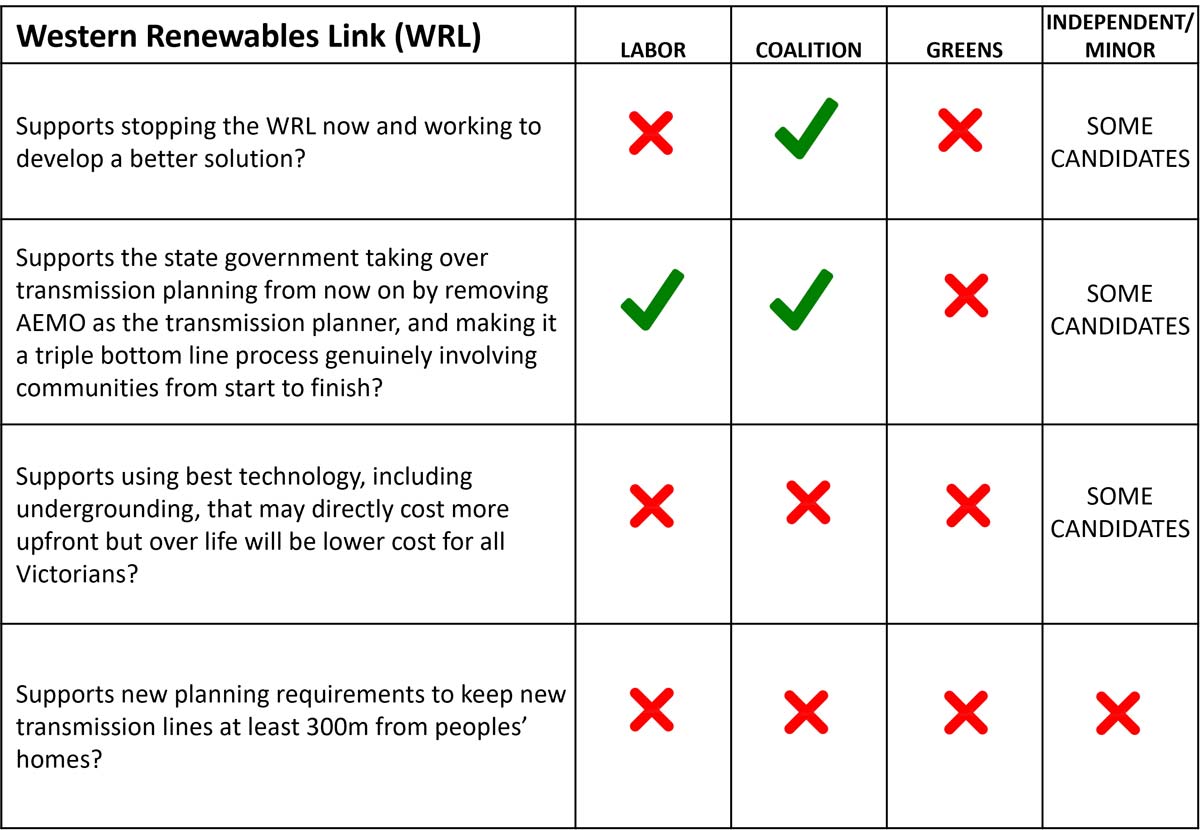
WELL DONE TO ALL WHO ATTENDED SATURDAYS STOP AUSNET’S TOWERS VEHICLE RALLY IN DAYLESFORD

We took our fight to Daylesford where our voices and “horns” were heard loud and clear throughout Hepburn Springs and Daylesford.
On Saturday November 19th 2022, community members took their fight against the proposed Western Victorian Transmission Network Project to Daylesford and delivered a simple message: Stop AusNet’s Towers – save our communities, our farms, our jobs and the environment.
The 1 km long convoy travelled from Hepburn Springs and circled through Daylesford much to the delight of local residents and tourists who cheered the convoy along its 10km journey. The loud and colourful convoy was comprised of tractors, utes, trucks, and cars decorated with banners opposing the dangerous and highly destructive project. On Daylesford’s Vincent Street the convoy was joined by community members adorned in bright red Stop AusNet’s Towers t-shirts and was led by a team of horses.
The rally was designed to heighten awareness of the project and put State politicians and candidates on notice. Farmers, business owners, residents and landowners are demanding the State Government refuse to approve AusNet’s proposal for overhead high-voltage transmission lines and associated terminal station linking Ararat to Melbourne’s West.
Stop AusNet’s Towers is an alliance of landowners, residents, farmers and communities concerned about the environmental, social and economic impact of the proposed Western Victorian Transmission Network Project.

Stop AusNet’s Towers spokeswoman Emma Muir said “AusNet was proposing to build 380 high-voltage transmission towers carving a devastating path of destruction through 190km of Western Victoria including through Hepburn Shire. The destructive 100-meter-wide easement will dissect farms in Victoria’s food bowl impacting high-value agricultural land that feeds Victoria, see bushfire risk skyrocket in bushfire prone landscapes and wreak irreversible damage on the environment including protected state parks and native habitat as well as tourist areas.”
“If AusNet gets its way, this project will devastate our communities land values will plummet and the amenity and liveability of our region and the wellbeing of residents will decline.”
“We represent communities that support real action on climate change and support renewable energy and understand the importance of an energy grid that delivers renewable energy but demand this transmission be undertaken without the significant cost of food security, cause catastrophic damage to the environment nor put lives at risk from an increased bushfire risk.”
“There is a better way to deliver this project – one that delivers the same benefits, the same action on climate change, without destroying our environment and communities.”
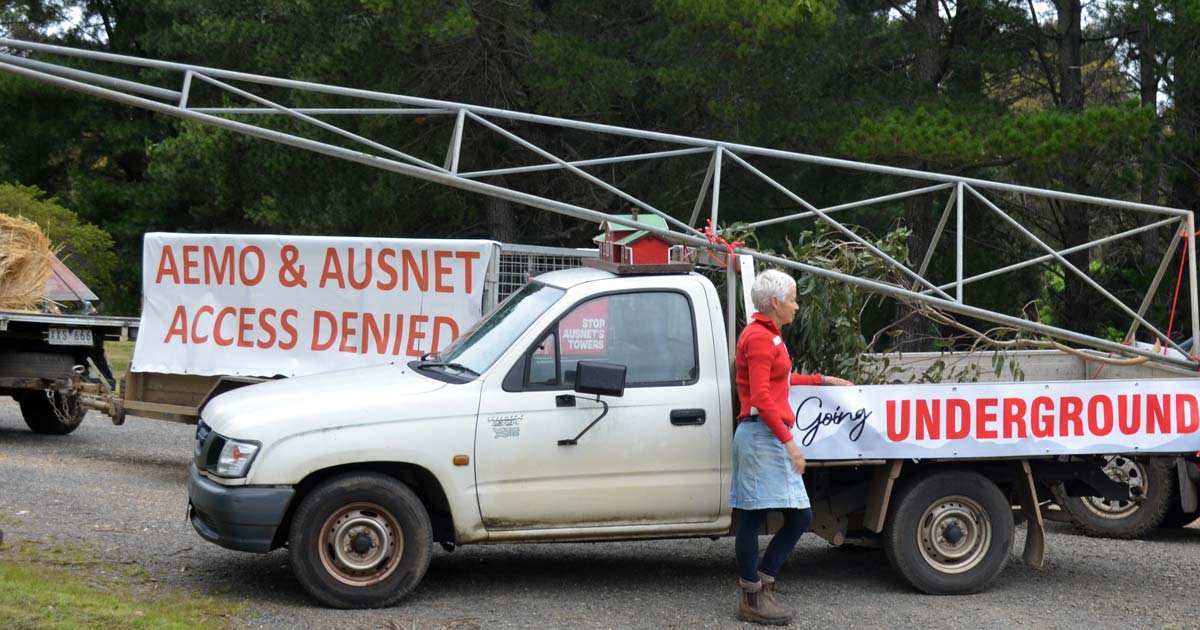


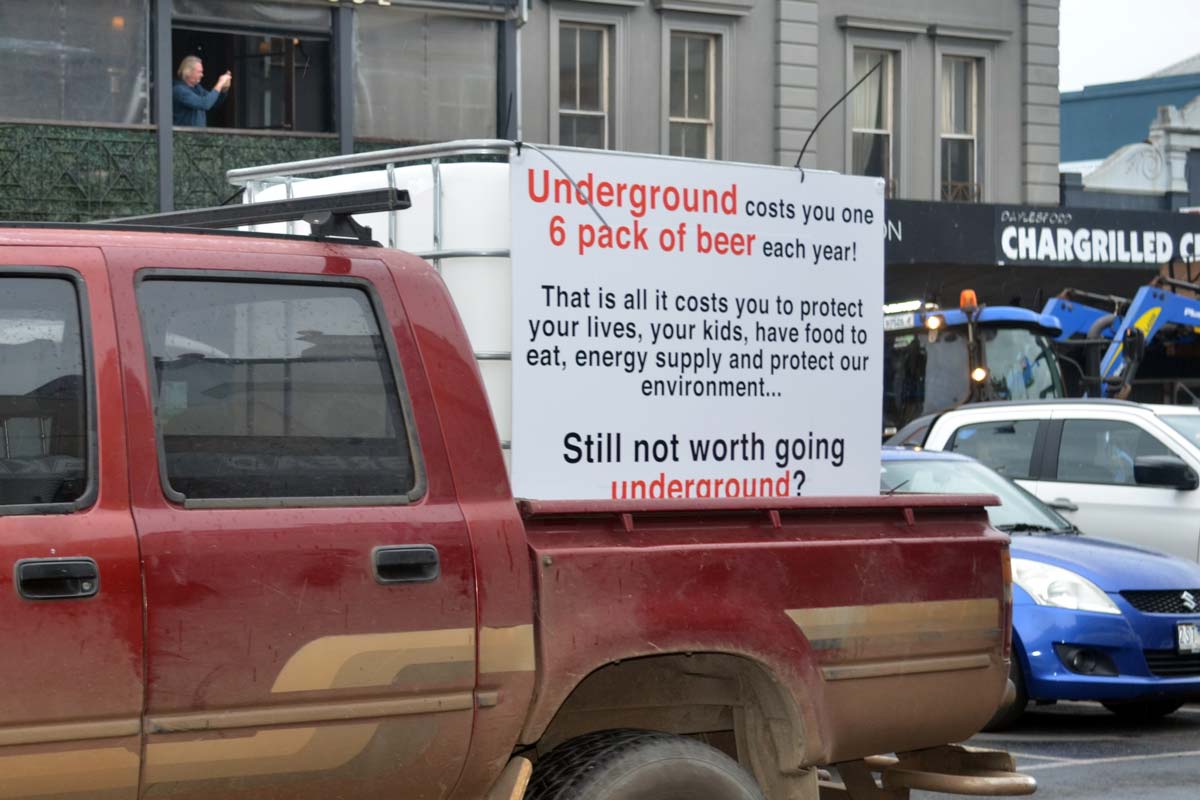
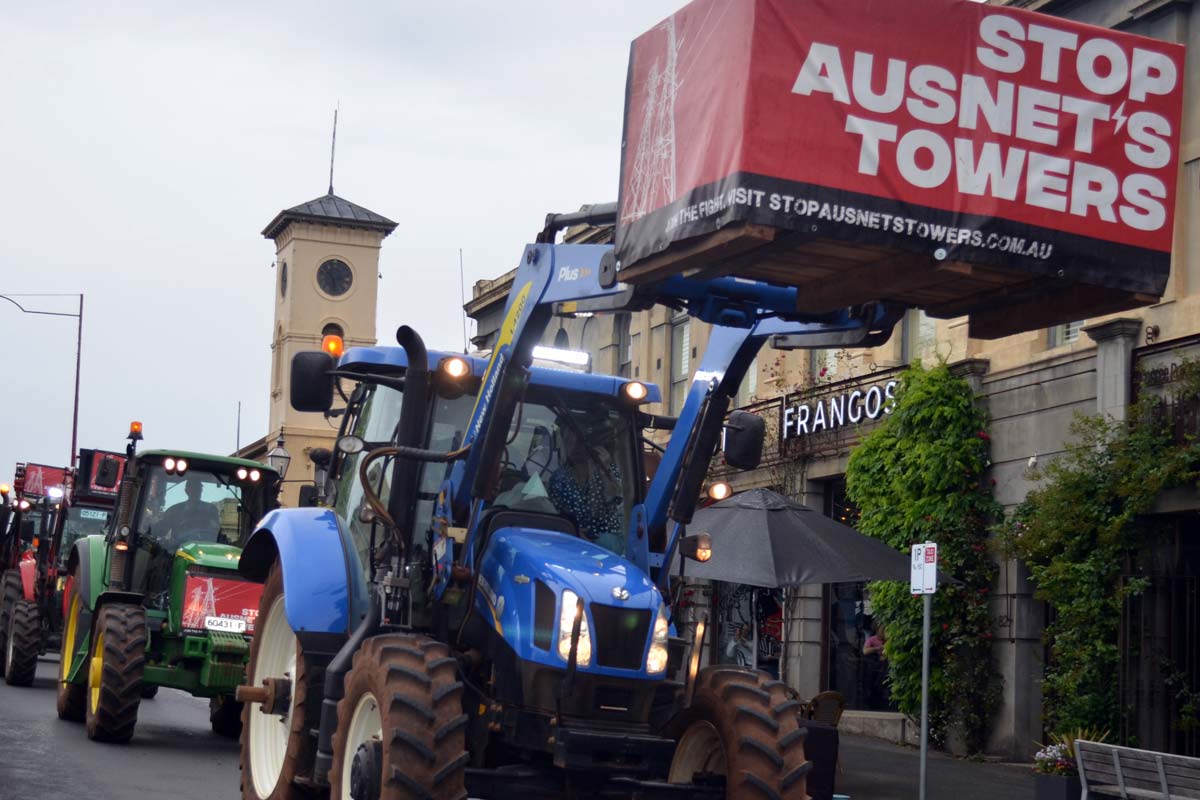
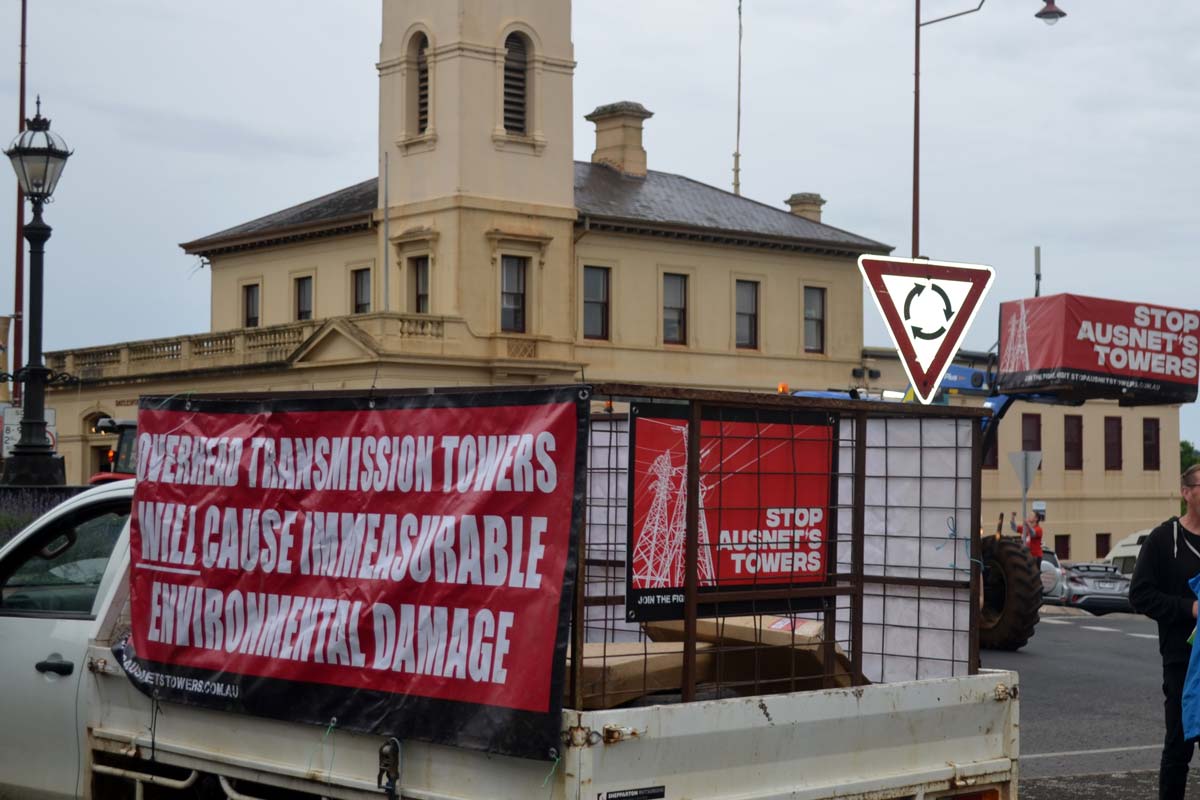
‘EVERYONE’S AGAINST IT’: THE POWERLINES DISPUTE IN ONE OF VICTORIA’S MOST MARGINAL ELECTORATES
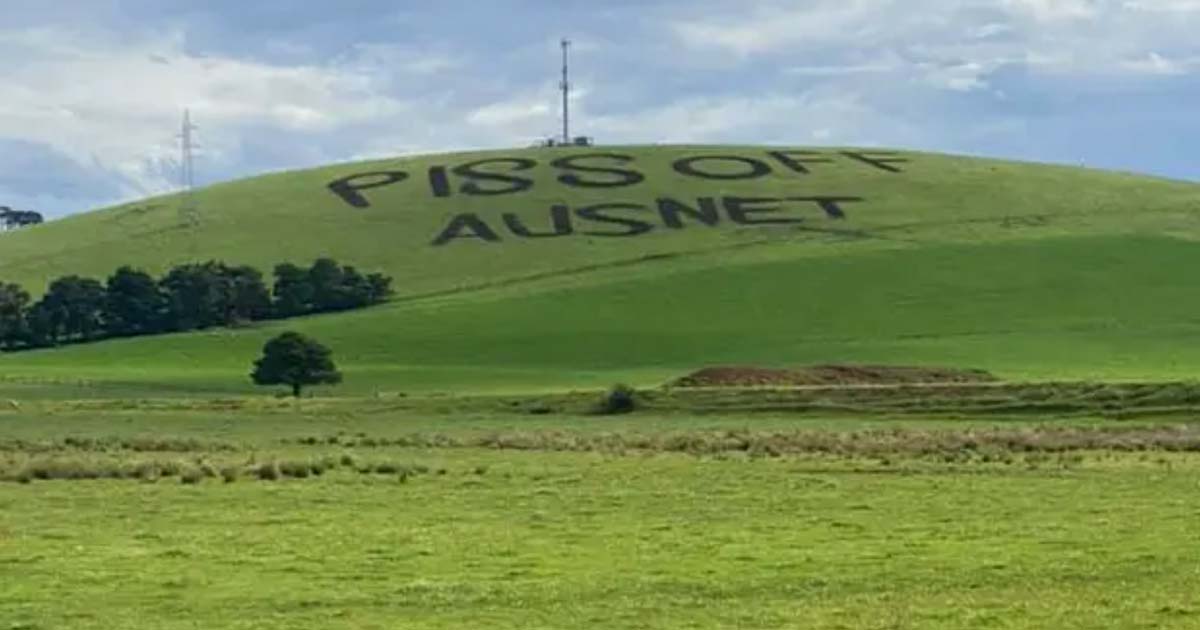
Great comments by Dan Cass in The Guardian, that echo what regional communities have been saying for two years.
The big questions are; why is no one listening? Why has this project not been reset?
Dan Cass, an energy policy expert with the Australia Institute, said communities involved in renewable energy implementation should be seen the as beneficiaries of that transition.
But he said taking the lowest-cost option to run above-ground transmission lines, without considering other impacts, was a “rubbish” policy.
“Requiring transmission to be lowest cost, without considering up the broader costs and benefits of the energy transition, devalues the planet and regional communities,” Cass said.
“We can point the finger at a particular project but really, it’s everyone that is involved in the national Integrated System Plan – state governments, the Energy Security Board, transmission companies – everyone should have been upfront and communicating earlier.”
Cass said research conducted by the Australia Institute showed that regional communities were broadly supportive of renewable energy projects.
“If you have the right process from the start, you can really turn it around and make it something that improves these rural areas,” he said. “But it is difficult to unscramble an egg.